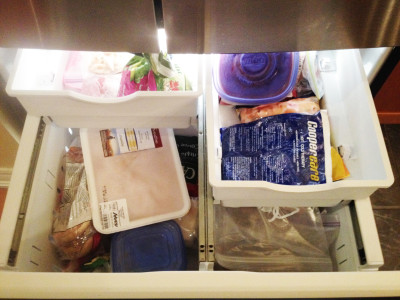Halton and the Salvation Army give out grocery cards after ice storm
STORY BY SAMANTHA MAICH
The Municipality of Halton gave out $27,000 worth in grocery store cards to residents on financial aid through Salvation Army locations from Jan. 8 to Jan. 10 in response to the ice storm.
“About $450,000 in grocery cards were made available to communities that were the hardest hit,” and, “the remaining cards were given to the food banks,” said Oakville MPP Kevin Flynn in a phone interview.
These cards were made available to anyone in Halton whose power was out for more than 48 hours during the ice storm, and is on financial aid. The cards supplied $50 for an individual and $100 for a family, and are applicable for use at local grocery stores.
“If you’re on Ontario works or on ODSP you don’t have a lot to live on,” said Flynn. The idea was to give these families the amount it would take for them to restock their freezer once. If someone had their power go out for three or four days, which was the maximum known time, then it would amount to as much as someone whose power went out for one or two days. This is why they had a fixed amount.
“I think we helped 275 households,” Flynn said, about the Halton distribution. He estimated that throughout the communities of Ontario, where cards were distributed in different ways, around 12,000 people were helped.
Toronto resident Margaret Hood was without power from Dec. 21 to 24. She explained that everything in her fridge and freezer went bad, though she had a downstairs freezer that kept cool. She said she lost about $50 to $60 worth of food. She is also trying to use the food in her downstairs freezer quickly, as she doesn’t trust the expiry dates anymore.
Dominique Evans-Zeldin of Acton lost power from Dec. 22 to Dec. 25. She lost the contents of her fridge, but her freezer saved the rest of her food. She estimated the cost to replace these goods at $90.
“I think about someone who may be struggling,” Hood said. “They would probably buy things that are on sale and freeze it.”
Hood is a vegetarian, and does not need to worry about meat going bad in her house, but worries about how this must affect families on financial aid. She gave a word of advice to families. “I would highly recommend that everyone goes to [a] Chinese market and buys one of these emergency stoves.” They are designed like Chinese hot pots and use butane rather than electricity.
Evans-Zeldin used a gas stove, much like the one that Hood describes, during the ice storm. She also had some non-perishable foods on hand.
“Based on the cost of groceries and the amount of food that people lost, I think that it is a significant cost for people to recover from,” said Evans-Zeldin.
Both Hood and Evans-Zeldin said that they would apply for a grocery card if they were on financial aid.





